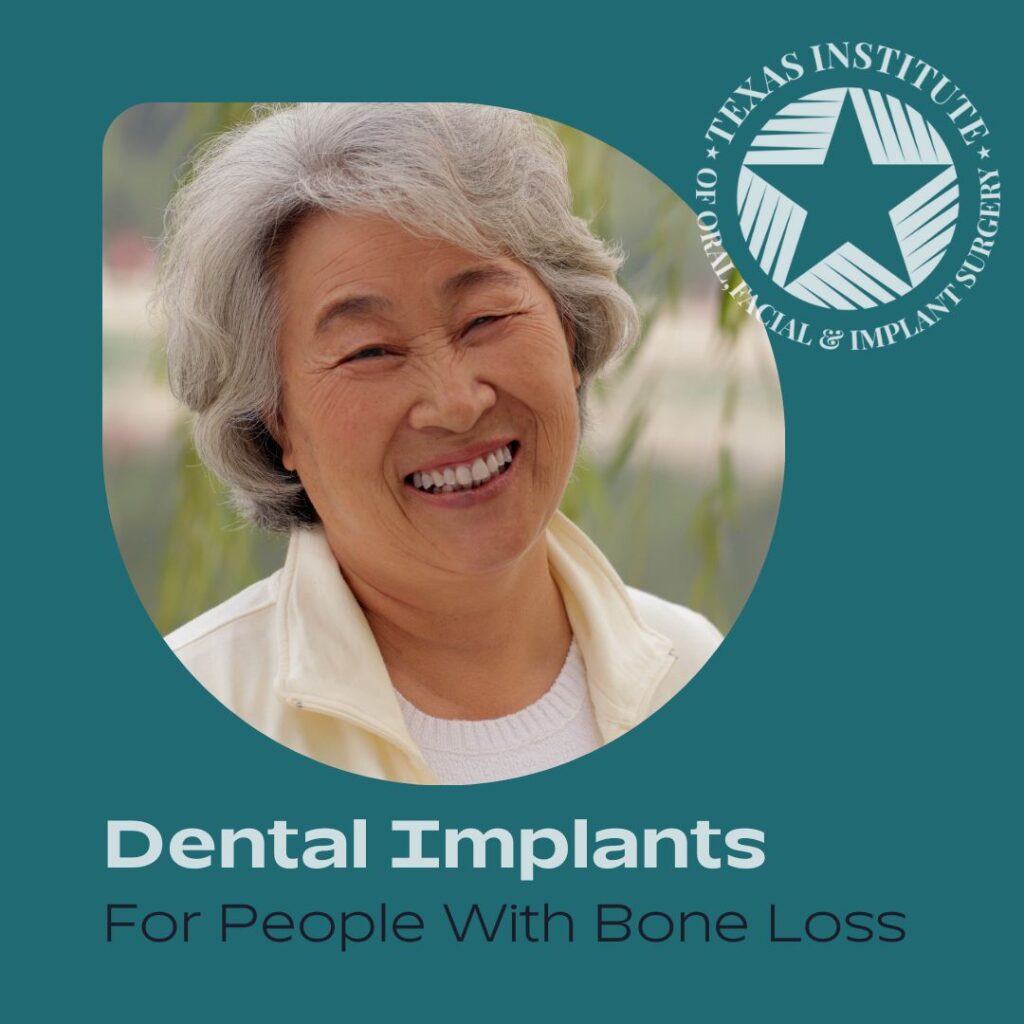
There are many reasons why maintaining strong and healthy teeth and gums is important. When you keep up with a good oral hygiene and preventative care routine, it helps ensure your teeth and gums can last you a lifetime. But a lack of attentive care can lead to cavities, root canals, and gum disease. All of these leave your smile in a weakened state, along with running the risk of losing your teeth altogether. Apart from the aesthetic aspect and how this may affect you, the roots of our teeth play an important role in maintaining a healthy level of bone within the jaw. As we lose teeth, we lose the bone structure around those spaces as well.
Why are Teeth Important for Bone Levels?
Besides enabling us to eat properly, teeth and their roots provide the necessary stimulation needed to maintain bone density and height throughout our jaws and facial profile. Once we lose teeth because of infection, trauma, or disease, there is a gradual recession of the bone’s density and mass.
The health and integrity of the jawbone then become compromised, which can lead to other issues. One of those is the inability to properly place an implant in the jaw to restore any missing teeth. After all, dental implants require adequate bone support to hold them in place.
For those people who want to have an implant placed but lack bone support, there is a way that it can still be achieved: by performing a bone graft.
Bone Grafting (Augmentation)
Severe bone loss can usually prevent a person from getting a dental implant placed, but working with a specialist who offers bone augmentation (or bone grafts), can change that.
Bone augmentations involve placing biocompatible bone material or synthetic products into the areas where the bone has resorbed, allowing it to regenerate and restore the height, contour, and density of the jaw in that space. This treatment is important because implants need the right amount of healthy bone for them to be successful.
If implants are placed in areas where the bone levels are too low or narrow, it can potentially lead to the implant failing. Choosing a specialist who has extensive training and experience with bone augmentation gives those with severe bone loss the chance to successfully pursue dental implant treatment.
The team at the Texas Institute of Oral, Facial & Implant Surgery is highly experienced in performing bone augmentations and is proud to offer our patients this option when they might not otherwise qualify for dental implants.
Ridge and Sinus Augmentation
There are two types of augmentations: ridge and sinus. Ridge augmentation involves restoring and recontouring the bone along the jawline, particularly when there are several lower teeth missing. Whereas sinus augmentation involves the bone in the upper jaw, because of its close relationship with the nasal sinuses (your sinus cavity is essentially the roof of your mouth.)
Working with our Midlothian implant specialist means you will be partnering with a team that has extensive knowledge and experience with both types of augmentations, and we will be there to support you throughout the whole process.
Severe bone loss does not mean your dreams of having implants can’t come true. Schedule a consultation with our Ellis County implant expert today to learn more about the treatment options available.



